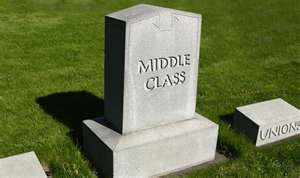 |
| I live in Utopia. Where do you live? |
First, there's internet connectivity. Back in the 90s, we were talking about getting to an 'internet dial tone', an internet that was like a phone. You picked it up, and there was simply ALWAYS a dial tone. You could always call someone, and if they answered you could talk. Well, not only are we not there, we're not close. Internet connectivity is different, inherently more fragile, subject to many more breakdowns and failures. I had to reset my router earlier today - back in the day, did anyone ever have to reset their phone? With TCP/IP you have seven layers, you have routing tables, you have all sorts of disruptions, both intentional and accidental, and you are accessing it all from huge, fragile, monolithic general purpose operating systems that literally have millions of points of failure.
Now, over that you're going to stretch the so-called "Internet of Things" - a TCP/IP stack, a lightweight operating system, a web server and some other execution platforms like a JVM, Flash, or a PHP interpreter, and maybe a mail server on virtually everything you can see. These IoT OS platforms will be in ROM - there won't be any storage on these devices - and any vulnerability will be hard coded into the device forever. If you want to see the contours of this ugly, chaotic near-term future, just look at the discussions around home routers. They all run some small, scaled down, old Linux kernel (because it's free) and they all have decades of accumulated vulnerabilities that cannot be (easily or effectively) patched. And now we're going to roll this same model out to our homes, our cars, our front door lock, our teevee, our pacemaker, our insulin pump. And hey, what could possibly go wrong?
This is a complex and complicated technology. We've done our best to make it usable by everyone, regardless of their willingness to learn how computer networks work. And that was a worthwhile goal - give people in all walks of life access to the world's accumulated knowledge (and cat pictures). But sadly, we haven't been able to keep up our end of the bargain. Why? I know this is going to shock you, but the answer is corporate profits. Could we back up, start over, and build an operating system that was safe, bulletproof and easily useful? Could we build a system that failed gracefully, that was hardened against attack, that could provide a scalable OS that would work from an irrigation system to a supercomputer? Yes. Yes we could. We now understand enough about the interaction of the OS and the network to do that. But then, you see, no one would own it. Apple and Microsoft couldn't profit from it. There's a reason why businesses have switched their data centers to open source operating systems - and there's a very different reason why people haven't switched their computers.
One of the 'problems' - one that cannot be overcome - is that we have, at this point, five different operating systems, nearly infinite variations of those OSs, and uncountable hardware platforms running them. The goal is not universal connectivity - making the internet 'disappear' - the goal is to find some kind of lock-in, some way to prevent people from achieving that goal. And the open source community provides that, but it's not a for-profit enterprise, so it can't compete with the marketing arms of the huge corporations.
So here's what you can expect. The internet is not going to 'disappear'. It's going to become a bigger part of our lives, patching vulnerabilities and managing something on the order of a dozen different operating systems on our home networks, from our router to our teevee to our refrigerator to our front door to our car. This is not a formula for ubiquitous internet services disappearing into our life - this is a contest for dollars that will result in a fragile, fragmented internet and a lot of people getting hurt.
...





